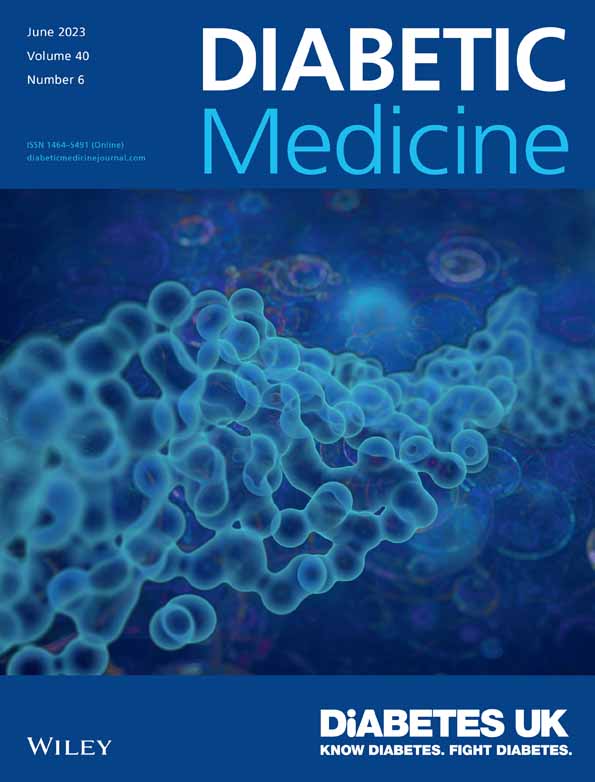Importance of caregivers' subjective social status and neighbourhood disadvantage for adolescents with type 1 diabetes
Abstract
Aims
Adolescents with type 1 diabetes from low-income populations are more likely to have difficulty in managing their diabetes and ultimately have poorer glycaemic outcomes, but less is known about neighbourhood-level factors or subjective social status (SSS) as risk/protective factors. We examined associations between multiple indicators of socio-economic status with diabetes outcomes.
Methods
One hundred and ninety-eight adolescents ages 13–17 (58% female, 58% White, non-Hispanic) experiencing moderate diabetes distress completed measures of diabetes management and diabetes distress, and their caregivers reported on SSS. Glycaemic indicators were extracted from medical records, and participants' addresses were used to determine area deprivation index (ADI).
Results
Higher levels of neighbourhood disadvantage were significantly associated with higher haemoglobin A1c levels and average glucose levels, but caregivers' SSS was more strongly associated with all glycaemic indicators, diabetes management and diabetes distress.
Conclusions
Given strong associations between caregivers' SSS and glycaemic control, diabetes management, and diabetes distress, screening for caregivers' SSS may identify adolescents who would benefit from additional support.
CONFLICT OF INTEREST STATEMENT
None of the authors have potential conflicts relevant to this article.




